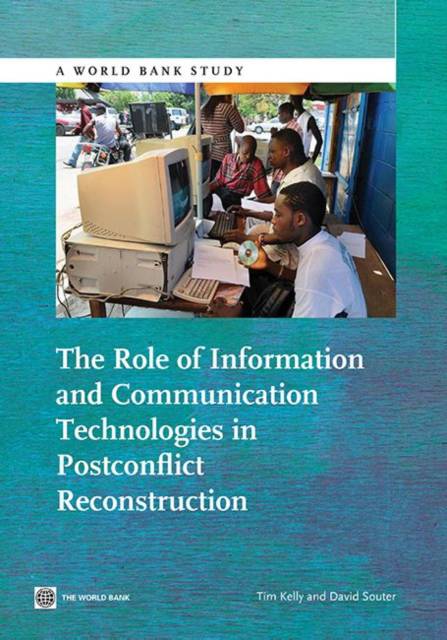
Nos liseuses Vivlio rencontrent actuellement des problèmes de synchronisation. Nous faisons tout notre possible pour résoudre ce problème le plus rapidement possible. Toutes nos excuses pour la gêne occasionnée !
- Retrait gratuit dans votre magasin Club
- 7.000.000 titres dans notre catalogue
- Payer en toute sécurité
- Toujours un magasin près de chez vous
Nos liseuses Vivlio rencontrent actuellement des problèmes de synchronisation. Nous faisons tout notre possible pour résoudre ce problème le plus rapidement possible. Toutes nos excuses pour la gêne occasionnée !
- Retrait gratuit dans votre magasin Club
- 7.000.0000 titres dans notre catalogue
- Payer en toute sécurité
- Toujours un magasin près de chez vous
The Role of Information and Communication Technologies in Postconflict Reconstruction
David Souter, Tim Kelly
44,45 €
+ 88 points
Description
The Role of Information and Communication Technologies in Postconfl ict Reconstruction studies explores the transformative role that Information and Communication Technologies (ICTs) can have in postconfl ict nations during the process of reconstruction. It examines how policymakers, the donor community, and the private sector have prioritized and sequenced ICT initiatives in the aftermath of confl ict. Case studies look at countries at different stages of post-confl ict reconstruction in Afghanistan, Liberia, Rwanda and Timor-Leste, and postrevolution in Tunisia. In addition, the report proposes a conceptual framework to understand how ICTs can contribute to improving service delivery and assisting with nation-building. The opening chapter of the report gives an overview of the relationship between confl ict, reconstruction, and the role of ICTs. It builds on experience within the Bank as well as on a wide range of practitioner, academic, and other literature. The second chapter seeks to establish a framework for understanding the ways in which ICTs interact with societies in transition from violence to stability, and for leveraging their potential to further that transition. The roots of this lie in understanding two fields of study, policy and practice: - Analysis of confl ict and post-confl ict reconstruction, and - Analysis of ICTs and the development of an information society. Chapter three then analyses the relationship between these two fi elds and proposes a framework for analysis and policy development. The fourth chapter makes a number of recommendations to the World Bank Group, to other donors and development actors, as well as to the governments of countries emerging from violent confl ict, and suggests areas for further research.
Spécifications
Parties prenantes
- Auteur(s) :
- Editeur:
Contenu
- Nombre de pages :
- 116
- Langue:
- Anglais
- Collection :
Caractéristiques
- EAN:
- 9781464800740
- Date de parution :
- 11-02-13
- Format:
- Livre broché
- Format numérique:
- Trade paperback (VS)
- Dimensions :
- 178 mm x 254 mm
- Poids :
- 217 g







